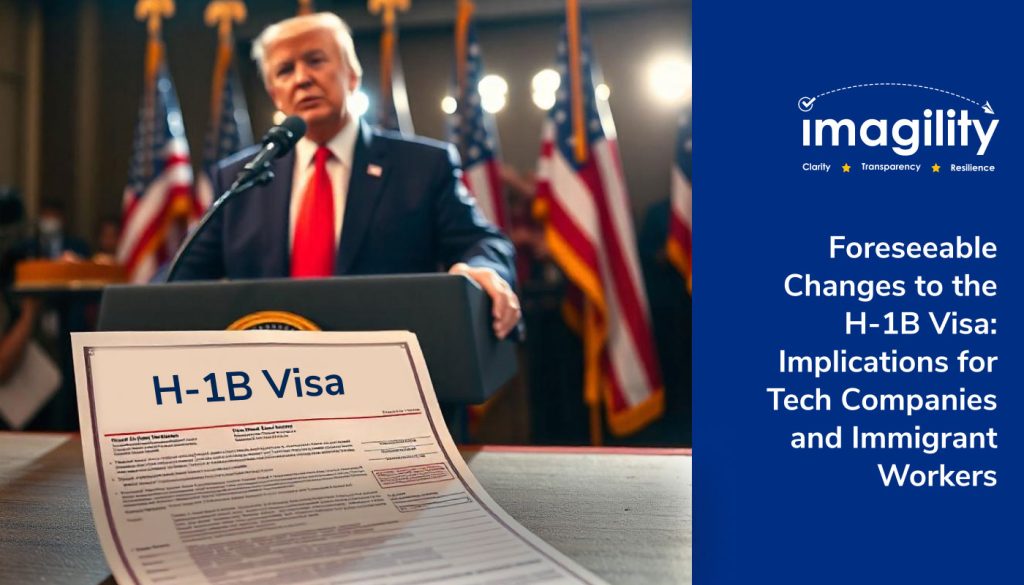The H-1B visa is a crucial tool for U.S. tech companies to bring in highly skilled workers from around the world. However, possible changes to the program could have a big impact on both businesses and the people who rely on these visas.
What This Means for Tech Companies
- Higher Costs and More Paperwork: New rules could make it more expensive and harder for companies to hire H-1B workers. For example, previous policies under Trump’s administration increased wage requirements and added strict rules about proving the relationship between the worker and employer. Similar measures could return, making it tougher for companies to meet these rules.
- Talent Shortages: Many tech companies rely on H-1B workers to fill roles in critical areas like software development, artificial intelligence, and cybersecurity. If visa rules get tighter, businesses may struggle to find enough skilled workers, which could slow down innovation.
What This Means for Workers
- Less Job Stability: Stricter application rules and more government checks could make the process riskier for H-1B workers. It might also make it harder to change jobs or apply for permanent residency.
- Fewer Opportunities for Entry-Level Roles: Plans to raise minimum wages for H-1B workers could mean fewer companies are willing to hire them, especially for junior roles or fresh graduates just starting their careers.
What Could Change?
With Trump coming back to power, we might see policies like
- Tougher rules for proving that jobs require specialized skills.
- Restrictions on workers who are placed at client sites by staffing companies.
- More workplace checks to ensure rules are followed.
How to Prepare
For companies, now is a good time to explore other ways to fill roles, like training local talent or hiring remotely. Workers should stay updated on policy changes and consider seeking advice from immigration experts to understand their options.
Reforms to the H-1B program will affect everyone, so staying informed and prepared is key to navigating these potential changes.









